Introduction
Automatic Nest Boxes are advanced poultry farming equipment designed to enhance egg production efficiency while improving hen welfare. These nest boxes automate the egg collection process, reducing labor requirements and minimizing egg breakage. In modern poultry operations, automation plays a crucial role in maintaining productivity, hygiene, and profitability.
Traditional manual collection of eggs is labor-intensive, time-consuming, and prone to errors. Eggs laid outside designated areas can become dirty, broken, or contaminated, reducing overall farm revenue. Automatic Nest Boxes address these issues by providing hens with a comfortable, secure space to lay eggs while automatically transporting eggs to a collection system.
Automatic Nest Boxes are especially beneficial for large-scale commercial layer farms, where thousands of hens are housed. They integrate seamlessly with poultry farm management systems, conveyor belts, and climate-controlled environments, providing a modern, automated solution for egg production.
Technical Parameters
Material | High-density polyethylene (HDPE), stainless steel, or PVC |
Dimensions per Box | 30–40 cm width × 35–45 cm depth × 30–35 cm height |
Number of Hens per Box | 1–3 hens depending on size |
Nest Type | Single-tier or multi-tier stacking |
Egg Collection | Automatic conveyor belt or rolling tray |
Floor Material | Plastic or mesh to allow egg roll and airflow |
Back Panel | Solid or ventilated |
Mounting Type | Floor-mounted or suspended |
Control System | Programmable logic controller (PLC) or manual override |
Cleaning Method | Removable trays for high-pressure washing |
Optional Features | Soft bedding, curtains, anti-peck dividers, egg sensors |
Color | White, green, or red for better hen attraction |
Weight | 5–15 kg per box depending on materials |
Key Features of Automatic Nest Boxes
Automated Egg Collection
Eggs are transported to collection trays or conveyor belts automatically, reducing manual labor and preventing egg damage.
Comfortable Hen Environment
Ergonomically designed boxes provide hens with a private, secure, and comfortable space to lay eggs, encouraging optimal egg production.
Durable Construction
Made from high-quality plastic or stainless steel, these boxes are resistant to corrosion, moisture, and mechanical wear.
Anti-Peck and Anti-Crowding Design
Dividers and partitions prevent aggression and overcrowding among hens, maintaining a peaceful laying environment.
Easy Maintenance and Cleaning
Removable floors and trays allow for quick cleaning, maintaining hygiene and reducing disease risk.
Modular and Flexible Layout
Boxes can be stacked or arranged to fit barns of various sizes and layouts, scalable for different flock sizes.
Attractive to Hens
Color options, soft bedding, and curtains encourage hens to lay eggs inside the boxes rather than on the floor.
Ventilation and Airflow
Mesh or perforated panels maintain airflow, reducing humidity and keeping eggs clean.
Integration with Farm Automation
Compatible with egg collection conveyors, sensors, and climate-controlled environments for fully automated operations.
Energy-Efficient Operation
Designed for low power consumption while maintaining smooth egg rolling and conveyor operation.
Advantages of Automatic Nest Boxes
1. Increased Egg Production
By providing a secure and comfortable environment, hens are more likely to lay consistently in designated areas, increasing overall yield.
2. Reduced Egg Breakage
Eggs are gently transported to collection trays or conveyors, minimizing damage and maintaining high-quality eggs.
3. Labor Efficiency
Automation reduces the need for manual egg collection, saving labor and reducing operational costs.
4. Hygienic Egg Collection
Automatic rolling and collection prevent contamination from droppings, bedding, or floor contact.
5. Improved Hen Welfare
Comfortable and private nesting areas reduce stress, aggression, and pecking behavior, promoting better health and longevity.
6. Scalability
Modular design allows for easy expansion to accommodate larger flocks without significant modifications.
7. Reduced Operational Costs
Lower labor requirements, reduced egg loss, and improved efficiency contribute to cost savings.
8. Long-Term Durability
Robust materials ensure years of reliable operation with minimal maintenance.
9. Integration with Smart Farm Systems
Egg sensors, conveyor belts, and climate control systems can be integrated for full automation.
10. Flexible Installation
Floor-mounted or suspended options provide flexibility in barn layout and design.
Application Scenarios
Commercial Layer Farms
Ideal for high-volume egg production, ensuring clean and safe eggs while minimizing labor.
Breeder Farms
Supports controlled breeding and egg collection for hatching or sale.
Organic and Free-Range Operations
Encourages hens to use designated nesting areas while maintaining natural behaviors.
Research Facilities
Used in monitoring egg-laying behavior and studying production performance.
Automated Poultry Houses
Integrates with conveyor belts, egg sensors, and farm management systems for fully automated egg production.
Small and Medium Farms
Even smaller operations benefit from automation, improved egg quality, and reduced labor.
How to Use Automatic Nest Boxes
1. Installation
Place boxes in quiet, dimly lit areas to encourage hen usage.
Mount boxes on the floor or suspend them according to barn layout.
Connect egg collection trays or conveyors and ensure smooth operation.
2. Bedding
3. Encouraging Hen Use
4. Egg Collection
For automated systems, ensure conveyor belts are functioning properly.
For manual collection, retrieve eggs from trays daily to prevent damage.
5. Cleaning and Maintenance
Remove debris and bedding weekly.
Wash floors, trays, and panels with water or disinfectants.
Inspect components for wear and replace as needed.
6. Safety Precautions
Disconnect power before maintenance or cleaning.
Avoid standing beneath conveyor systems during operation.
Wear protective equipment when performing inspections.
Frequently Asked Questions (FAQ)
Q1: What are Automatic Nest Boxes?
A1: They are automated egg-laying boxes that provide hens with a comfortable environment and automatically collect eggs.
Q2: How many hens can use one box?
A2: Typically 1–3 hens per box depending on size.
Q3: Are these boxes suitable for large-scale farms?
A3: Yes, they are designed for commercial operations with automated egg collection.
Q4: How do I maintain hygiene?
A4: Regular cleaning of floors, trays, and bedding ensures a hygienic environment.
Q5: Can they be integrated with farm automation systems?
A5: Yes, they can work with conveyors, sensors, and climate-controlled environments.
Q6: What type of bedding should be used?
A6: Straw, wood shavings, or sand are recommended; they should be clean and changed regularly.
Q7: How often should eggs be collected?
A7: Eggs should be collected at least once or twice daily.
Q8: Are Automatic Nest Boxes durable?
A8: Yes, made of high-quality plastic or stainless steel, they are long-lasting.
Q9: Can they reduce labor costs?
A9: Yes, automation significantly reduces manual egg collection needs.
Q10: Do they prevent egg breakage?
A10: Yes, gentle rolling mechanisms and conveyors minimize breakage.
Conclusion
Automatic Nest Boxes are an essential component of modern poultry farming. They enhance egg production, reduce labor, and maintain egg quality while improving hen welfare. With durable construction, modular design, and integration with automated farm systems, these nest boxes are ideal for small, medium, and large-scale poultry operations.
Investing in Automatic Nest Boxes ensures higher productivity, cleaner eggs, and better operational efficiency. By combining automation, hygiene, and animal comfort, they represent a smart solution for sustainable and profitable poultry farming.
Company Profile
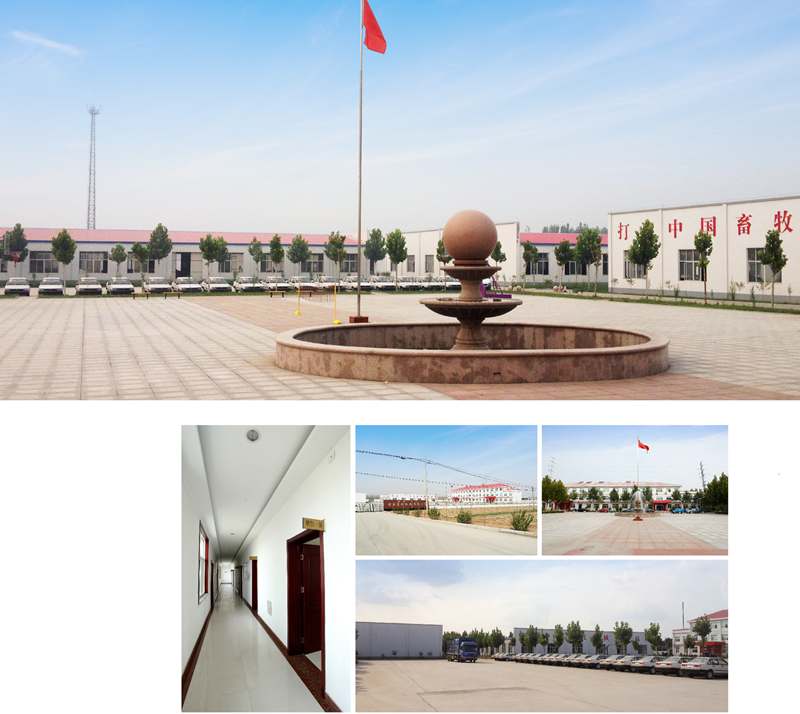
Shandong Huimin Qinle Livestock Machinery Co., Ltd. (formerly Shandong Huimin Qinle Livestock Machinery Factory) is a professional poultry equipment manufacturer with over 20 years of experience. We offer a comprehensive service package, from design (land and chicken coops), production (equipment and prefabricated steel coops), installation, commissioning, customer training, and after-sales service.
Located in Huimin County, Binzhou City, Shandong Province, China, the company has extensive experience in mechanical processing and manufacturing, as well as livestock machinery production and operation. With fixed assets of RMB 15 million, the company employs 160 people, including 30 R&D staff, and occupies a 40,000-square-meter factory. Equipped with over 110 pieces of advanced precision production equipment, including CNC machining centers and laser cutting machines, the company boasts a production capacity of RMB 50 million.
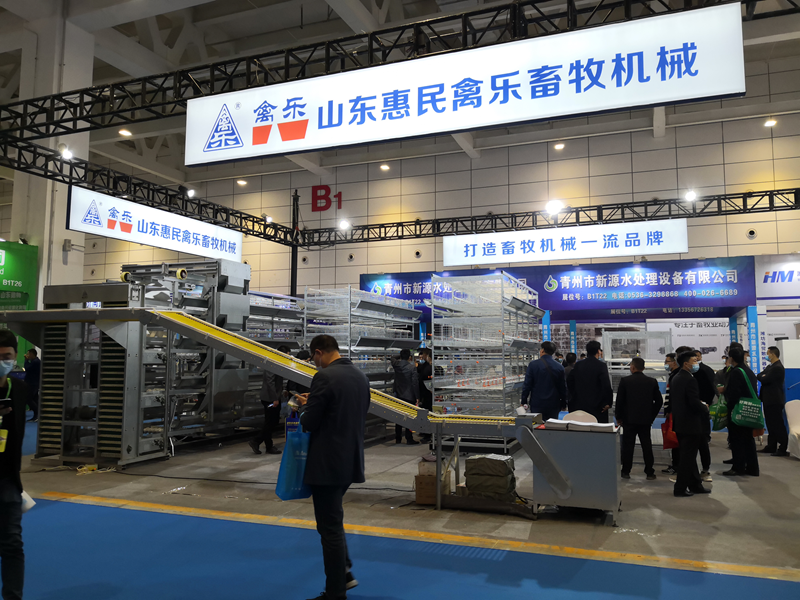
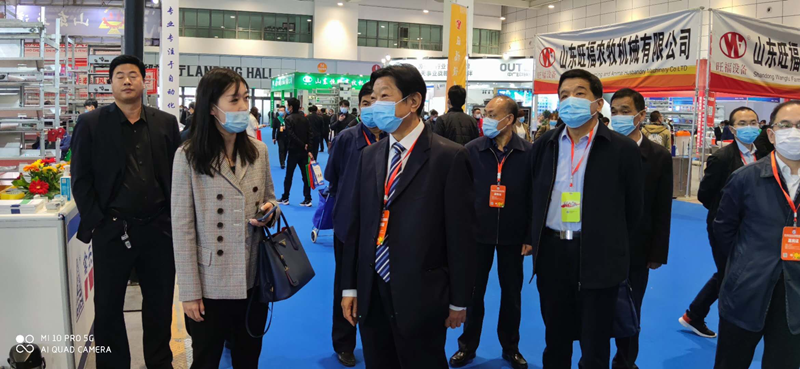
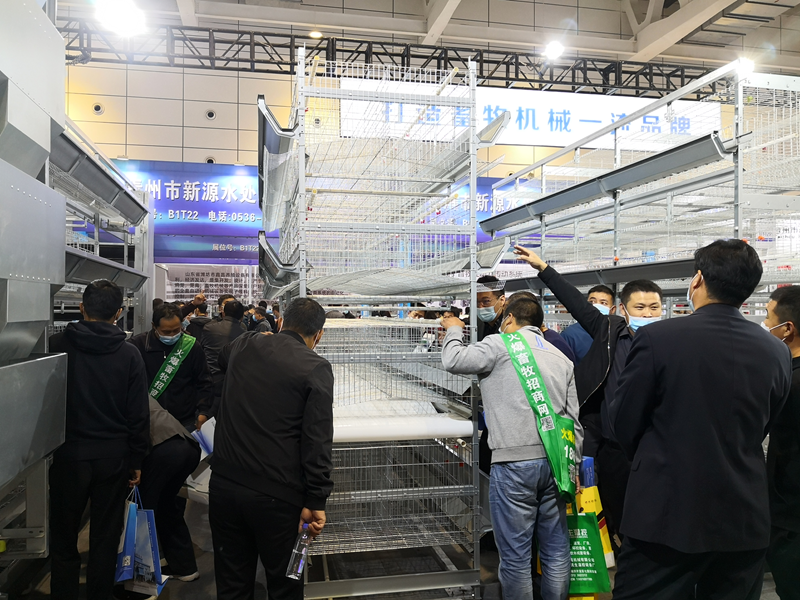
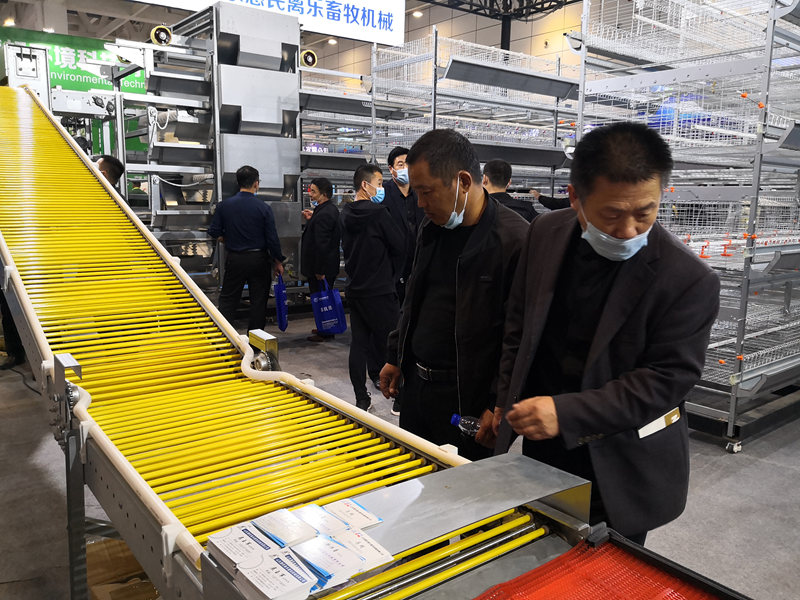
Chicken Farming Equipment Mesh Production Workshop

Machining Workshop
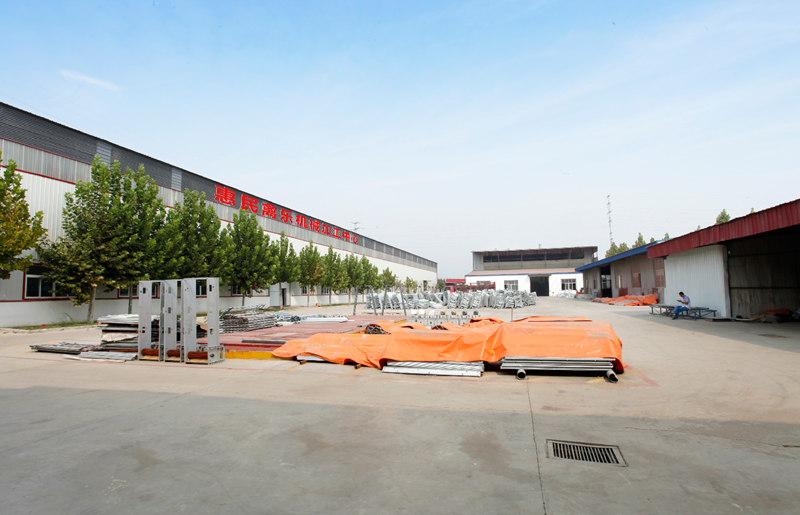
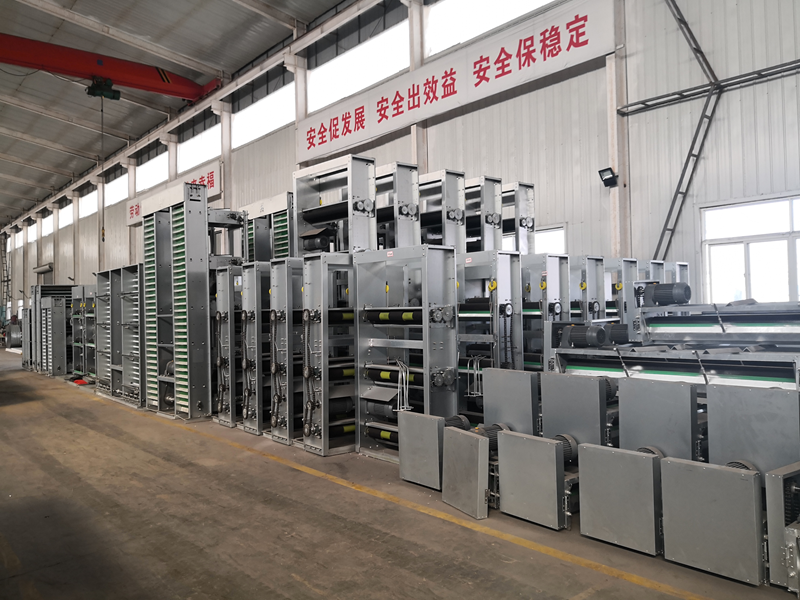
Turret-type CNC Punch Press, Laser Cutting and Other Machining Equipment
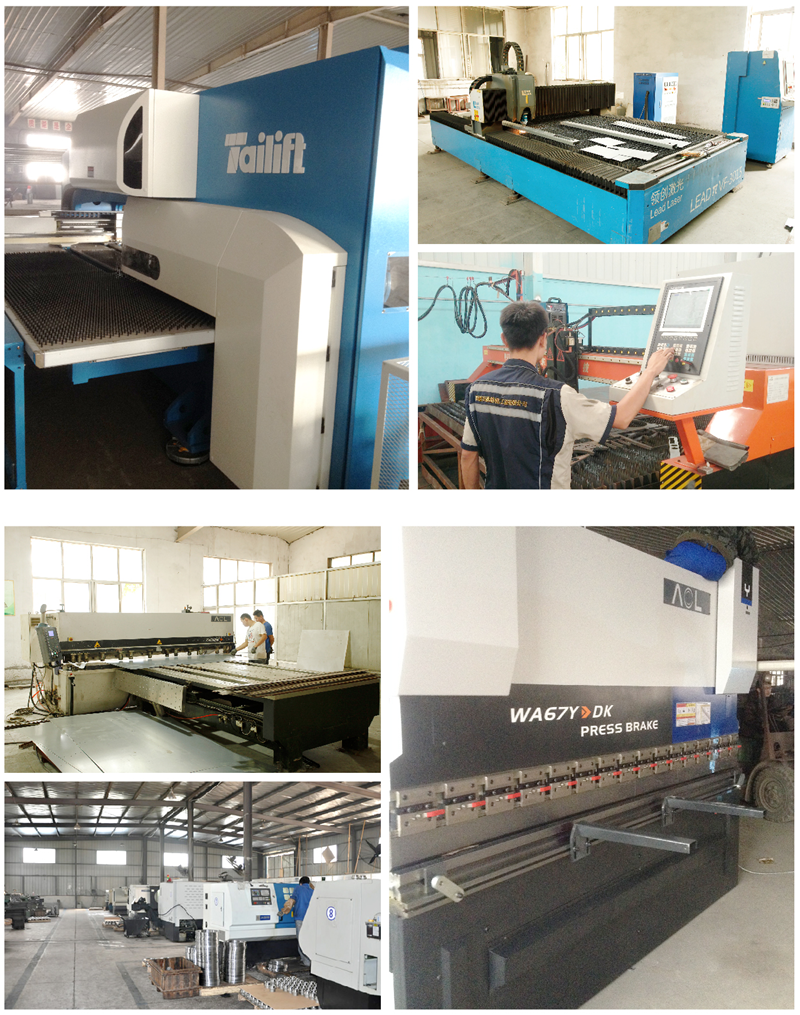
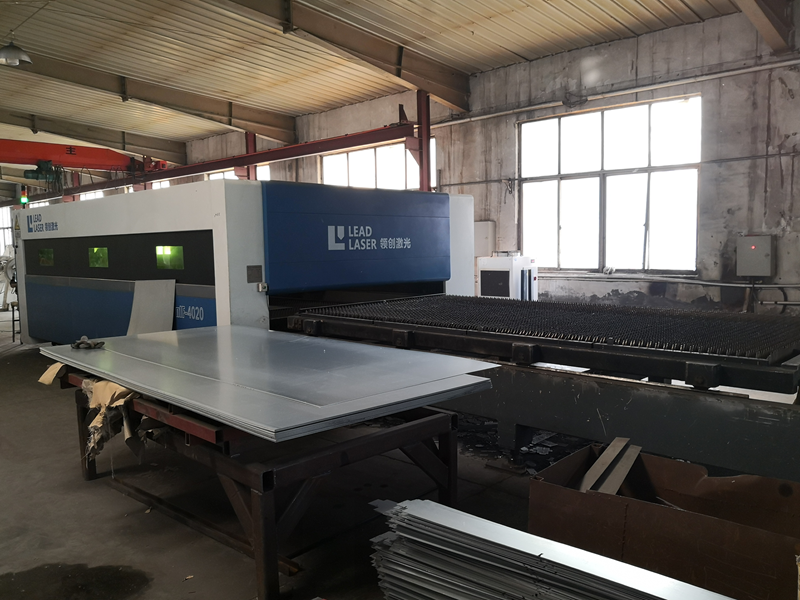

Fully Automated Roll Forming Production Line

Hot-dip Galvanizing Production Line

Electroplating Production Line
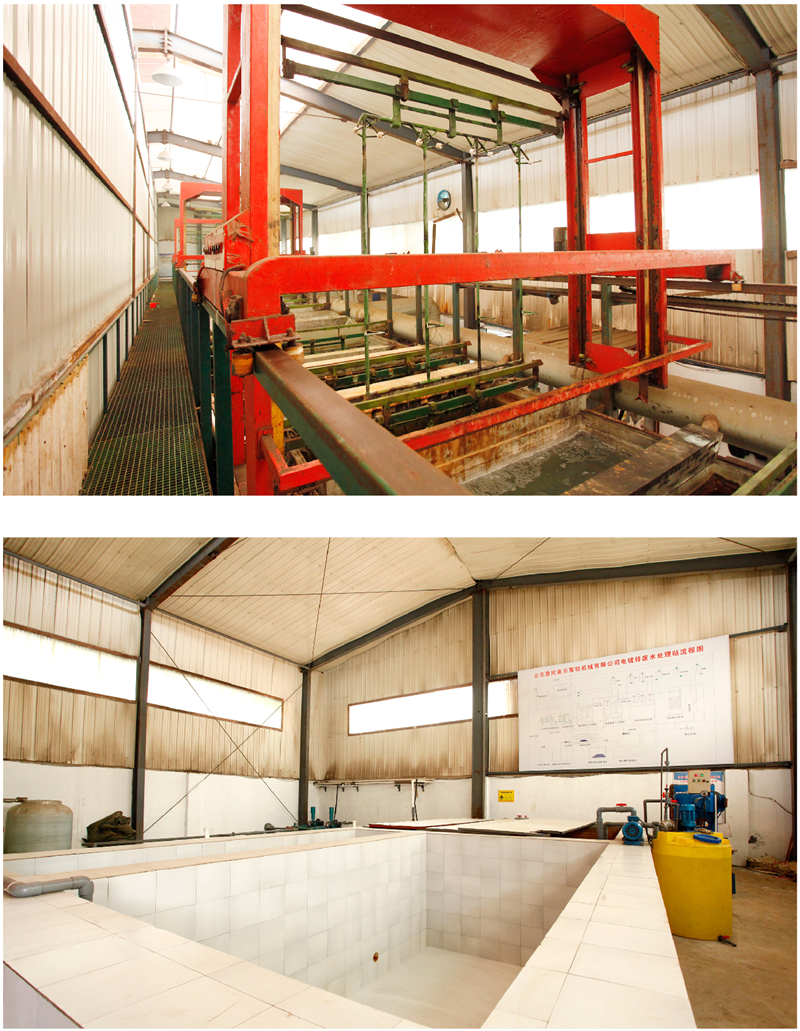
Environmental Protection Equipment
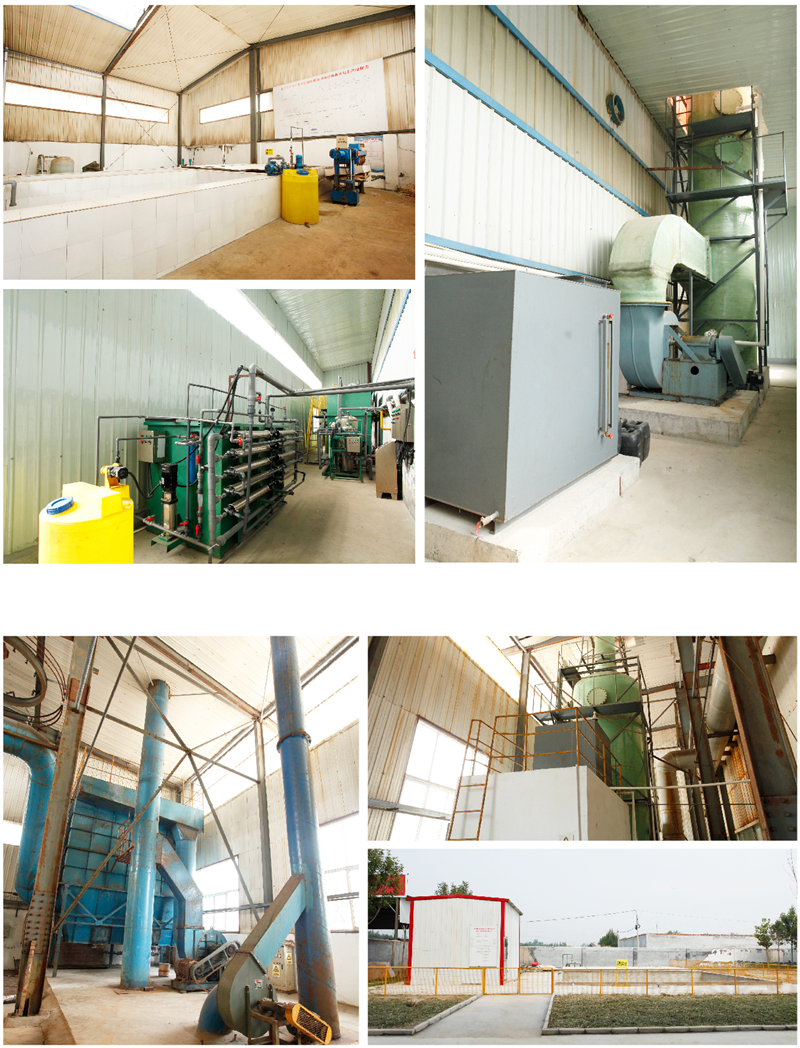
Chicken Farming Equipment Product Series
Egg-laying Hen Farming Equipment
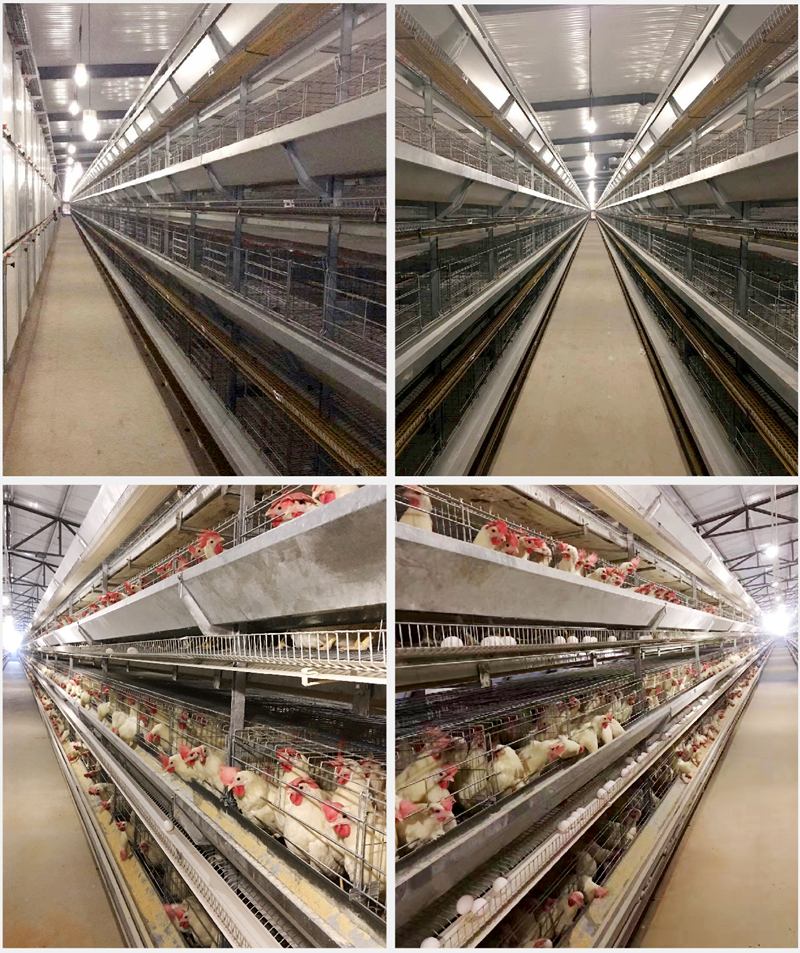
Stacked Brooding Cage Equipment

Stacked Broiler Cage Equipment
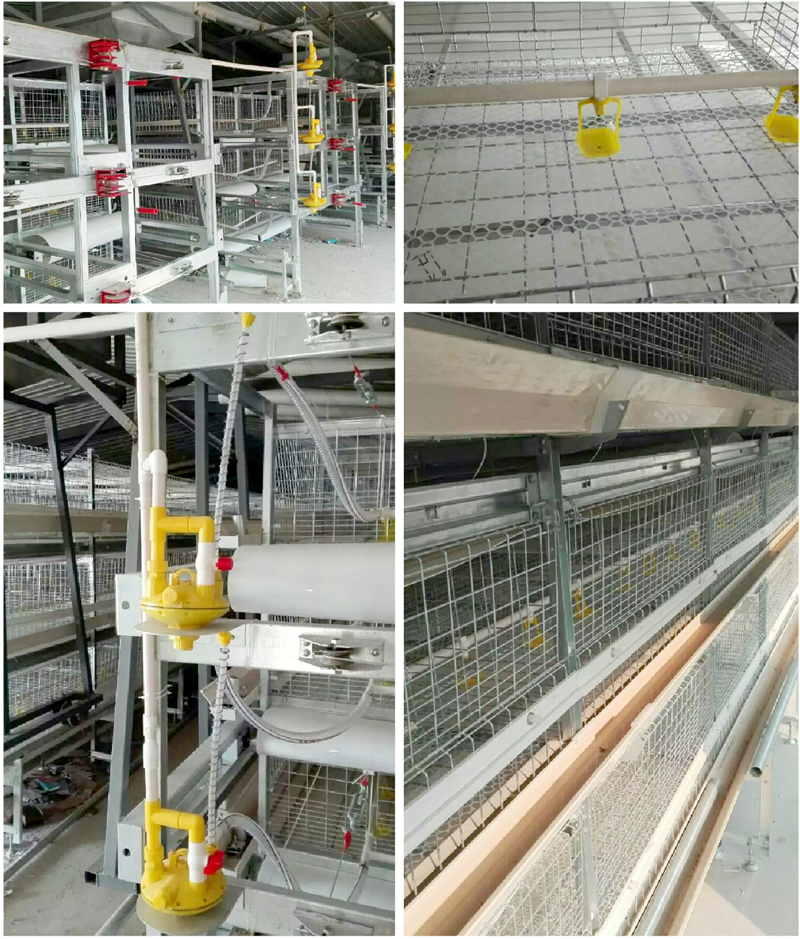
Stepped Layer Hen Cage Rearing Equipment
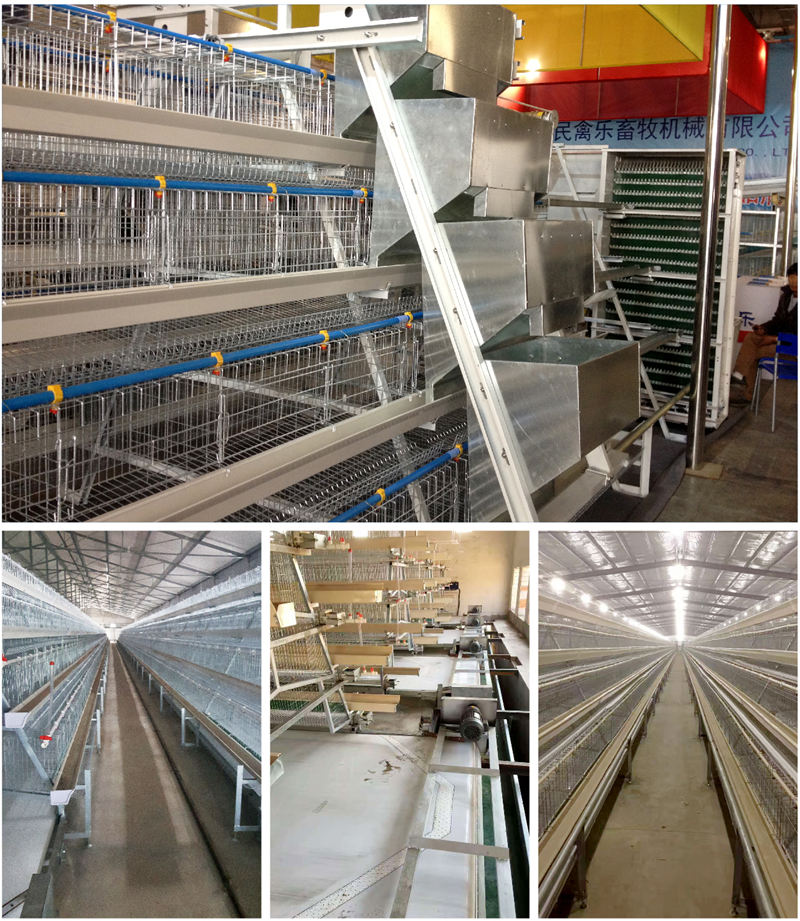
Automatic Egg Collection System
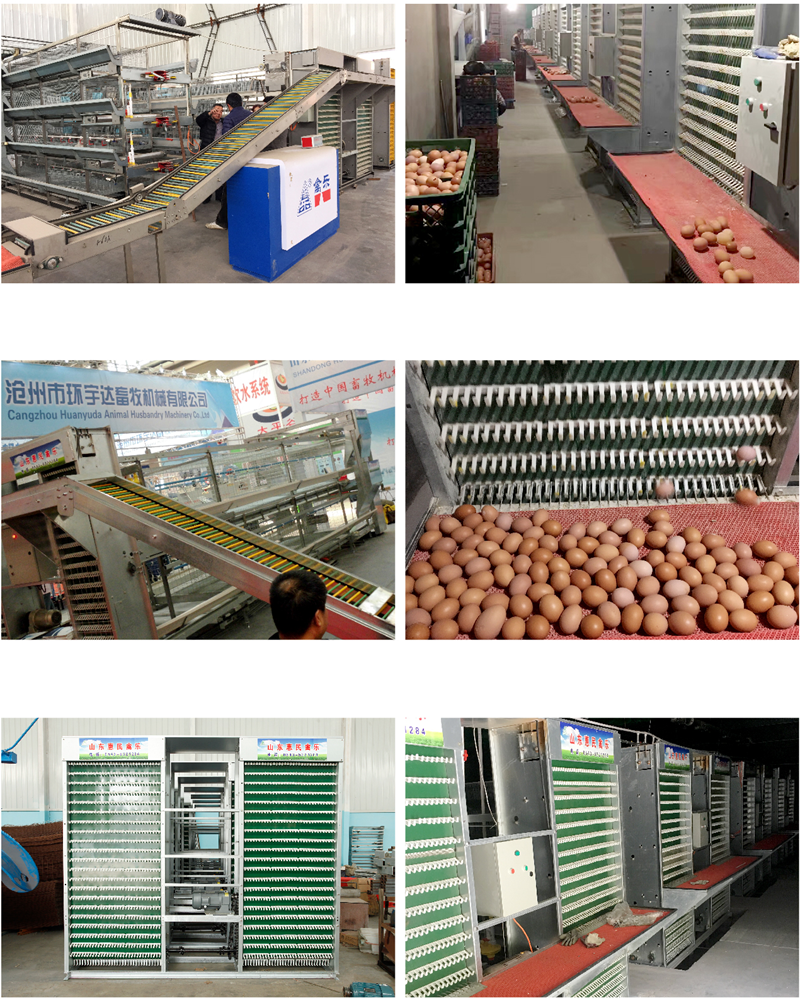
H-type Cage Feeding Machine
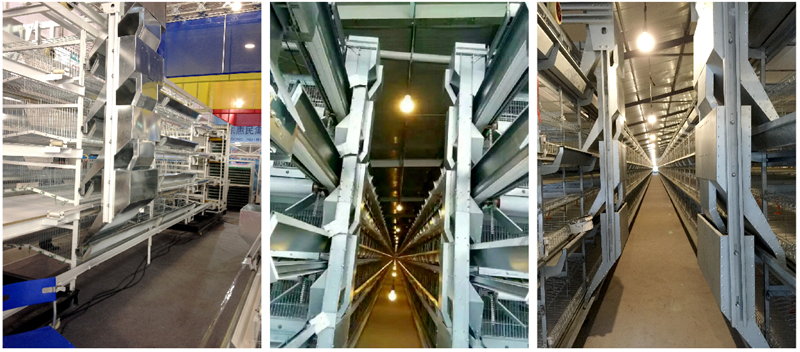
Stepped Cage Straddle Feeder
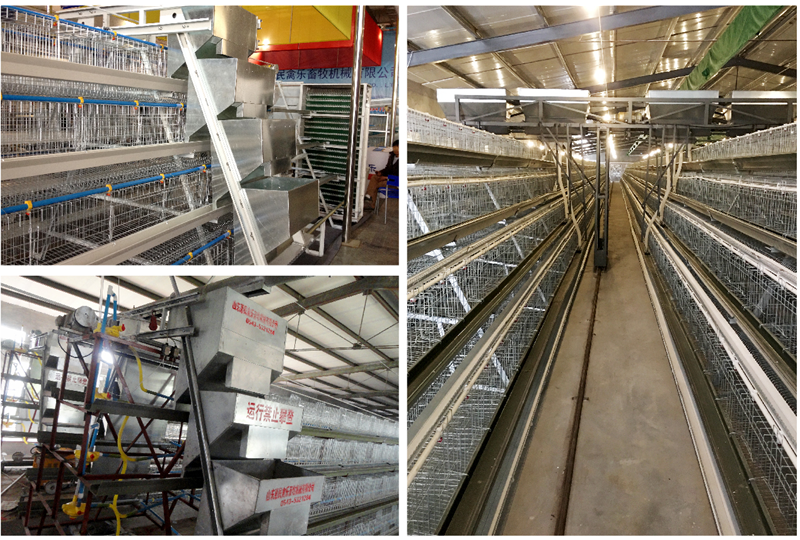
Manure Removal Machine
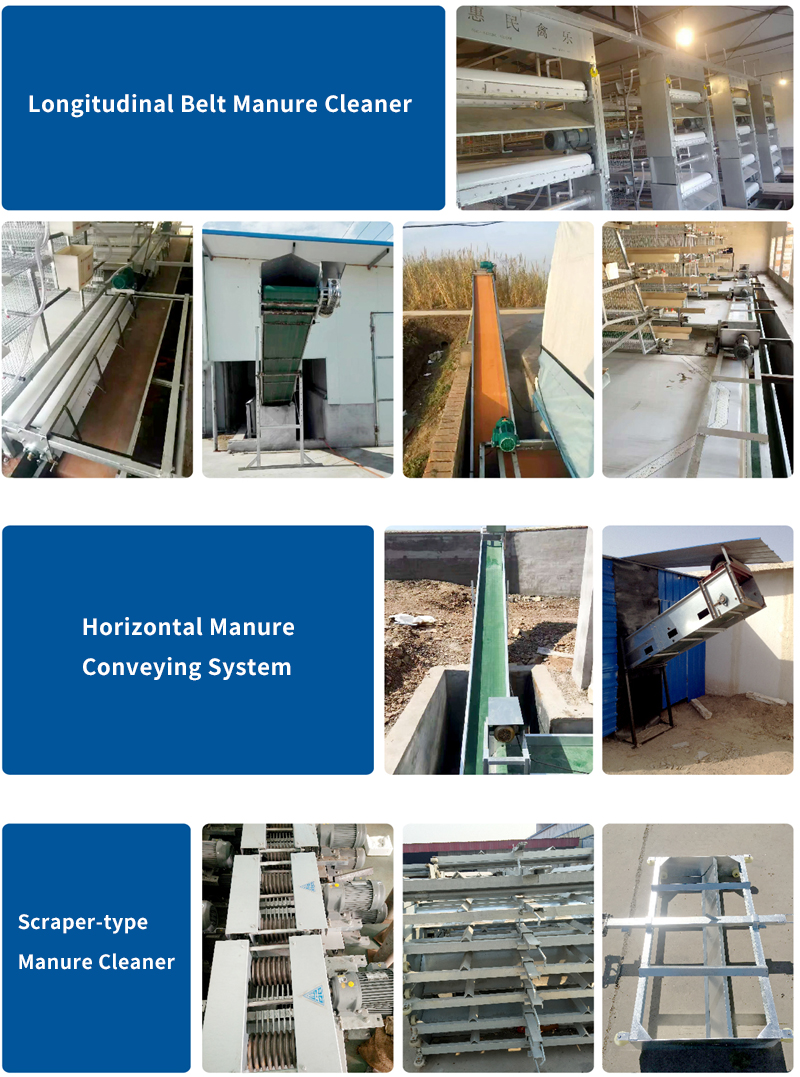
Fans, Heated Curtains, Environmental Control Systems, and Lighting Equipment
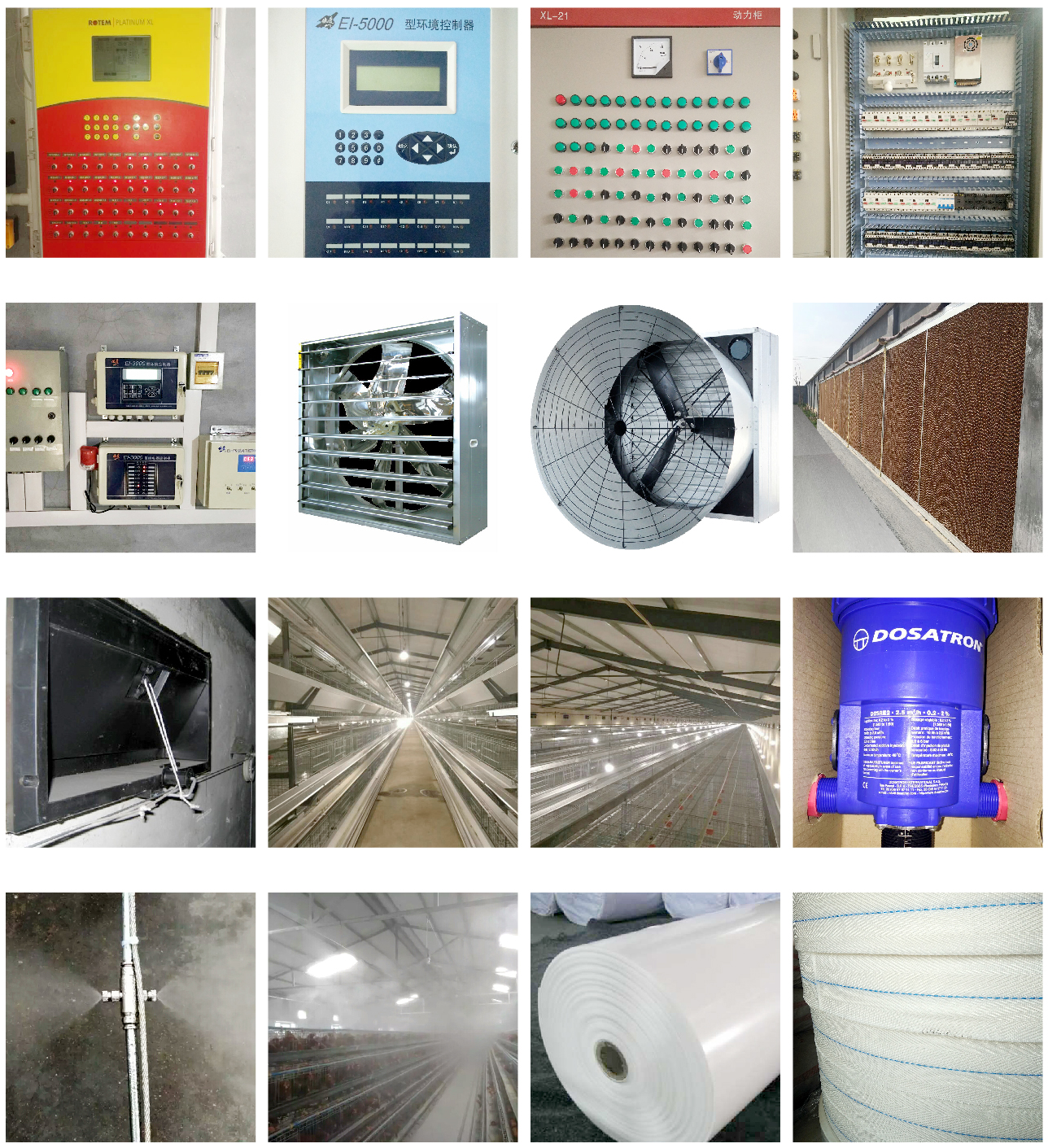
Complete Set of Equipment for Organic Fermentation Treatment of Manure
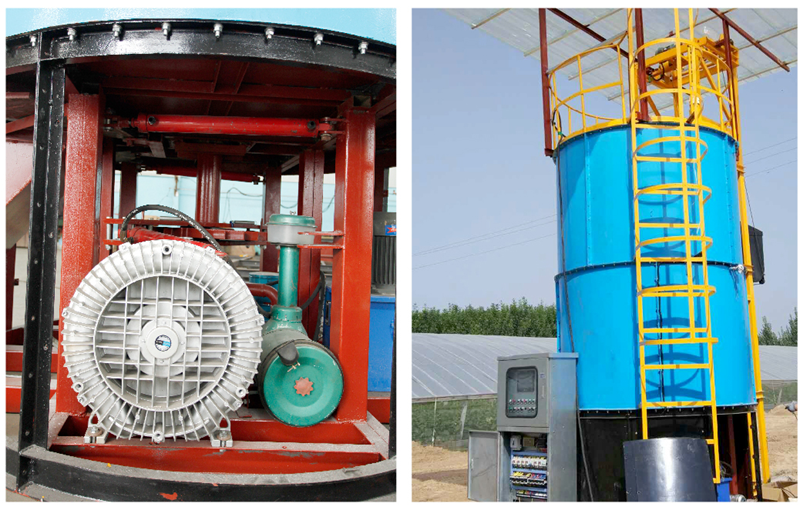

 Catalogue
Catalogue
































 WhatsApp
WhatsApp телефон
телефон